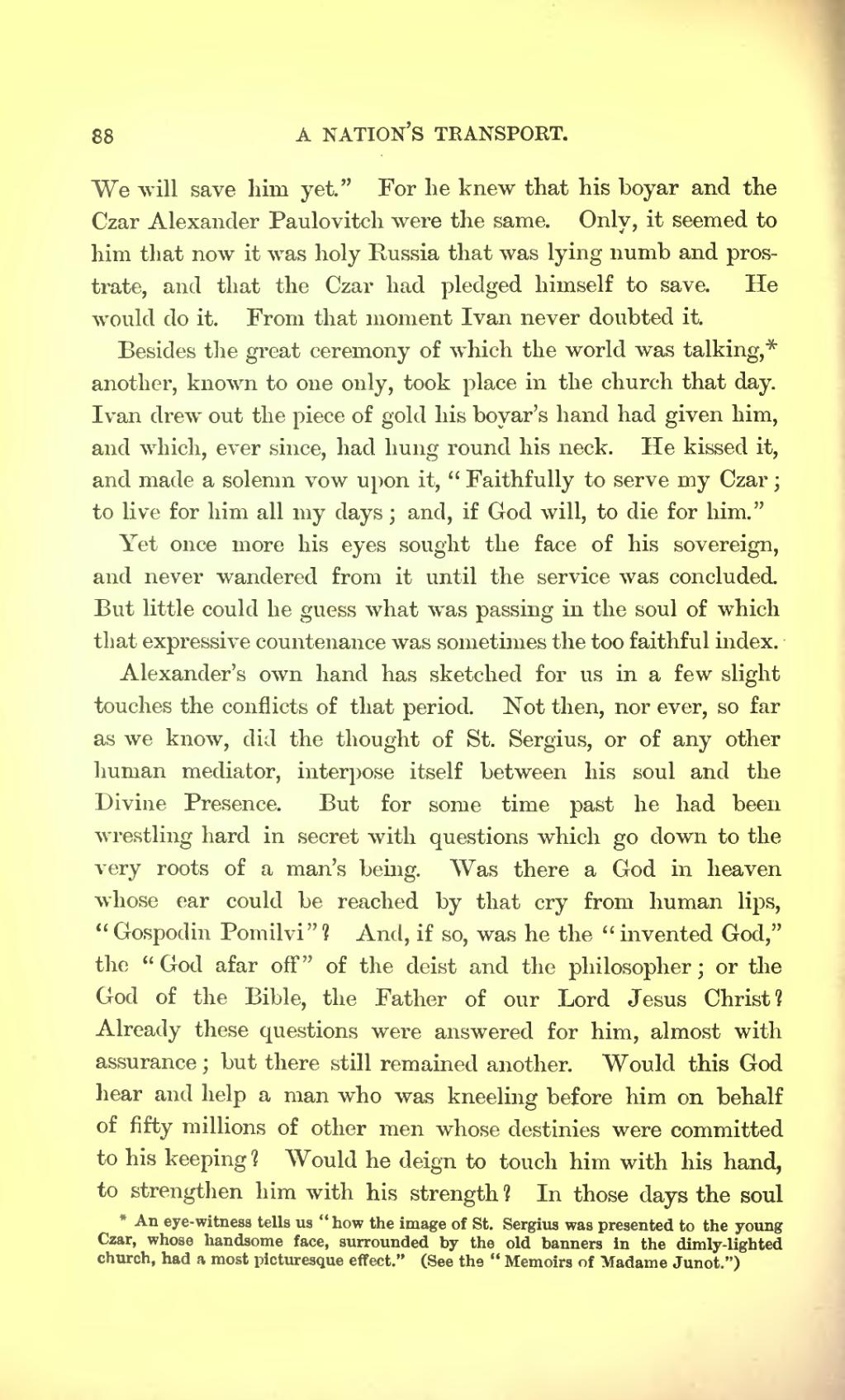We will save him yet." For he knew that his boyar and the Czar Alexander Paulovitch were the same. Only, it seemed to him that now it was holy Russia that was lying numb and prostrate, and that the Czar had pledged himself to save. He would do it. From that moment Ivan never doubted it.
Besides the great ceremony of which the world was talking,[1] another, known to one only, took place in the church that day. Ivan drew out the piece of gold his boyar's hand had given him, and which, ever since, had hung round his neck. He kissed it, and made a solemn vow upon it, "Faithfully to serve my Czar; to live for him all my days; and, if God will, to die for him."
Yet once more his eyes sought the face of his sovereign, and never wandered from it until the service was concluded. But little could he guess what was passing in the soul of which that expressive countenance was sometimes the too faithful index.
Alexander's own hand has sketched for us in a few slight touches the conflicts of that period. Not then, nor ever, so far as we know, did the thought of St. Sergius, or of any other human mediator, interpose itself between his soul and the Divine Presence. But for some time past he had been wrestling hard in secret with questions which go down to the very roots of a man's being. Was there a God in heaven whose ear could be reached by that cry from human lips, "Gospodin Pomilvi"? And, if so, was he the "invented God," the "God afar off" of the deist and the philosopher; or the God of the Bible, the Father of our Lord Jesus Christ? Already these questions were answered for him, almost with assurance; but there still remained another. Would this God hear and help a man who was kneeling before him on behalf of fifty millions of other men whose destinies were committed to his keeping? Would he deign to touch him with his hand, to strengthen him with his strength? In those days the soul
- ↑ An eye-witness tells us "how the image of St. Sergius was presented to the young Czar, whose handsome face, surrounded by the old banners in the dimly-lighted church, had a most picturesque effect." (See the "Memoirs of Madame Junot.")
